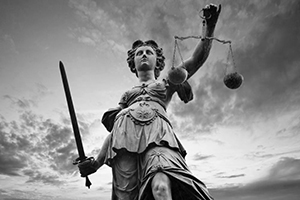Common Mistakes By Plaintiffs in Personal Injury Lawsuits
For individuals involved in a personal injury lawsuit, every choice can have an impact on the ultimate outcome of the case. This is especially true of plaintiffs. Since plaintiffs bear the burden of proof in civil suits, their decisions and actions are essential to how cases are settled.
Most people have little to no experience dealing with a lawsuit, so it is not surprising that many plaintiffs make mistakes that hurt their case. The personal injury attorneys at McKinley, Conger, Jolley & Galarneau, LLP, help clients from Stockton, CA, and Walnut Creek, CA, avoid common plaintiff mistakes in personal injury lawsuits so that they have the best chance of collecting the compensation they are due for injury damages.
Self-Representation
A surprising number of personal injury plaintiffs opt not to work with an attorney, and instead choose to represent themselves. Self-representation may sound like a good idea because attorneys can have costly fees. However, without the representation of an experienced and knowledgeable attorney, plaintiffs are far less likely to get a settlement or judgement in their favor, especially if the defendant has a professional legal team working on his or her behalf.
The fears about legal fees are also often unfounded. Most attorneys work on a contingency basis, meaning they only collect compensation if the plaintiff wins the case. Additionally, plaintiffs who have professional representation generally walk away with higher settlements than those who represent themselves, so plaintiffs who represent themselves often walk away with less than if they had chosen to work with an attorney.
Providing Inaccurate Testimony
Inaccurate testimony is a big problem in a personal injury case. Not only does it make it more difficult to sort out the facts of the accident and resulting injuries, but it makes the plaintiff look untrustworthy, which is not beneficial to the case. The two main reasons for inaccurate testimony are memory lapses and failure to adequately prepare for a deposition or court testimony.
To avoid making a mistake due to memory lapses, we urge accident victims to take notes as soon as possible after the incident. If possible, evidence should be collected from the accident scene as well (such as pictures, witness testimony, etc.). All of the case evidence should be thoroughly reviewed prior to a deposition, so the facts of the case are right in the plaintiff’s mind. Our attorneys never send our Stockton clients to testify without adequately preparing them for the process and the questions that may be asked.
Failing to Provide Adequate Evidence
All the claims made in a personal injury lawsuit should be supported by evidence. Vital pieces of evidence in personal injury cases may include:
- Police reports
- Witness depositions
- Medical records
- Medical bills
- Employment statements (to show lost wages)
Our attorneys will gather the evidence that is necessary to substantiate plaintiff claims so that our clients have the strongest case possible to present to the defense.
Taking a Quick Settlement
Settling a personal injury case outside of court is not necessarily a bad thing. In fact, many cases end in a settlement. However, plaintiffs often make the mistake of accepting a quick settlement, or accepting the first offer presented by the defense. The first offer is rarely the best offer. It is a good idea to negotiate until a more acceptable settlement is on the table.
Contact Our Attorneys
The best way to avoid common plaintiff mistakes in a personal injury lawsuit is to work with a knowledgeable attorney. To find out how the legal team at McKinley, Conger, Jolley & Galarneau, LLP, can be of assistance to you, send us a message online or call (209) 477-8171 at your earliest convenience to set up a consultation.


